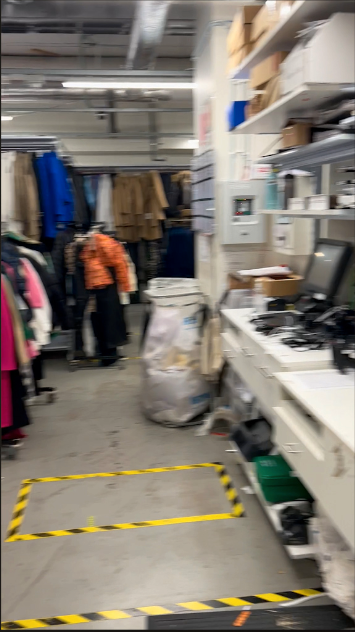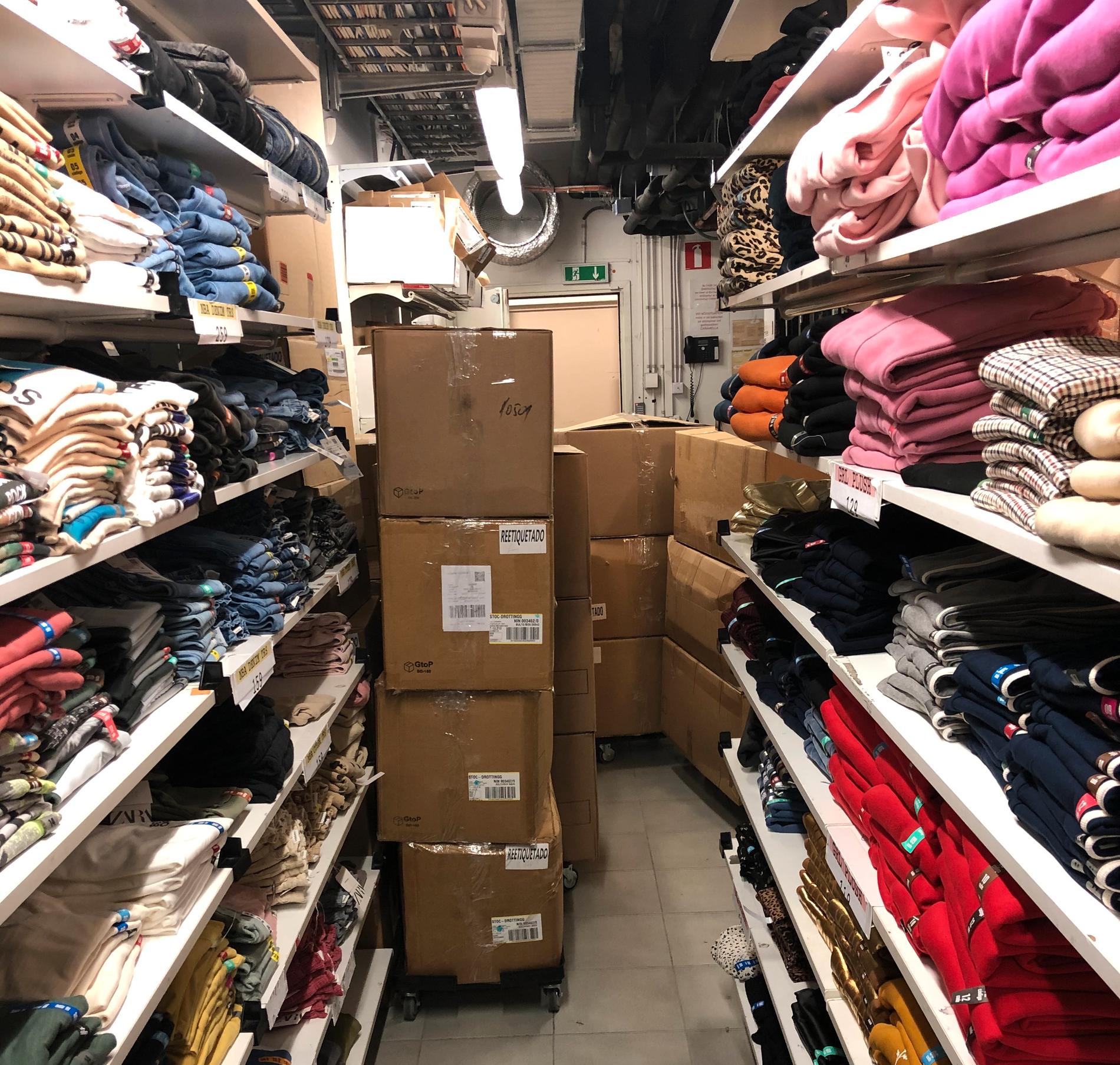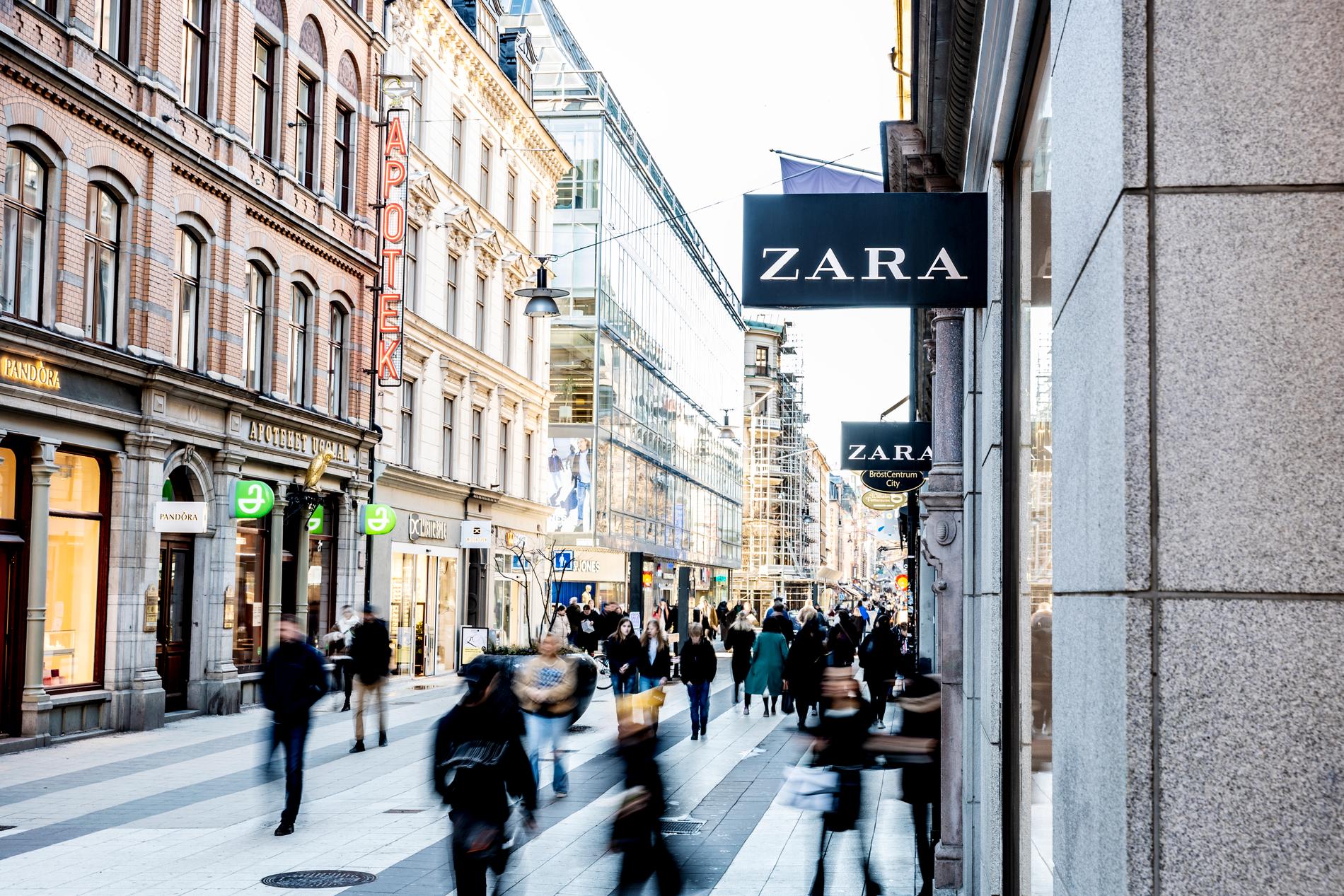39 Zara employees testify: "You are their slave"
Uppdaterad 2024-04-23 15.42 | Publicerad 2024-04-18
At Zara, employees toilet breaks are timed by management, they have to stand still in taped areas all day, and are subjected to bullying.
39 current and former employees testify to terrible working conditions.
"Sometimes it feels like a prison," says one employee.
Aftonbladet's TV program 200 Seconds has interviewed 39 employees and former employees who testify to awful working conditions at Zara stores in Sweden. Seven of them are currently employed, twelve worked there within the past year, and twenty left before 2023.
Zara is part of the world's largest clothing retailer, Spanish Inditex, which has 165,000 employees. There are 1 827 Zara stores around the world. In Sweden, there are 13 Zara stores and 445 employees. Zara's owner Amancio Ortega, 87, is the twelfth richest person in the world.
”Why are you one minute late?”
A recurring critique of the poor working environment at Zara revolves around restroom restrictions.
"When I spent one minute too long in the restroom, they came running to me and said, 'Why are you one minute late?'" recounts one employee.
"They time our toilet breaks; if we spend a long time in the restroom, they follow us and check. Then they stand outside and say, 'You've been to the restroom quite a few times now, what's happening?'" says another employee.

Zara quietly reduces wages, forces pregnant women to work too hard, and manipulates contracts and vacations, according to our investigation.
“You are their slave”, says a former employee.
Another former employee received too little money and complained:
”Then two suit-clad gentlemen from Spain took me into a small room and asked, 'Do we have a problem?' I got scared,” she says.
Zara does not comply with Swedish labor laws, according to many sources:
"Managers kicked people out left and right as soon as there were suspicions that someone was pregnant, or sick, or had made a mistake," says a former employee.

At times, former employee Una Subotic, 40, worked in a darkened warehouse with a headlamp.
"We didn't have lights in one of the warehouses. At first, we used the flashlights on our phones to see when we worked there. After three months, they bought us three headlamps. It was a disaster," Una says.
”Needed permission to leave”
Subotic was also ordered to stand still in a taped area and only move her upper body while unpacking clothes. Another former employee was subjected to similar treatment, on her first day at Zara's warehouse:
”When we went downstairs, the elevator doors opened, and then the manager pointed to a small taped area on the floor and said, 'You shall stand here.' The square is 50x50 centimeters, and you have to stand there for an entire shift and hang clothes on hangers, and remove the plastic.”
”If you wanted to leave the square, you had to contact the manager via walkie-talkie and ask for permission,” she says.
Almost no one except Una Subotic dared to come forward with their names and images and speak about the conditions at Zara:
"People from Zara will knock on your door at home and threaten you," says one employee.
”Followed women with hijabs”
Employees and former employees testify to racism within Zara.
Guards have alarms in their pockets that they activate when people of immigrant background leave the store.
Code word 64 means there is a foreign person in the store who must be checked.
"If someone wearing a hijab came in, we would follow them," says a former employee.

There are blocked emergency exits in some warehouse spaces, and the stress is enormous there, according to several:
”In the warehouse, there were so many clothes that we couldn't move. We had to dig out clothes. It felt like we were miners; it was so cramped that I just wanted to run away. We felt like rats," says a former employee who was a local safety representative.

After the publication of Aftonbladet/200 Seconds investigation Zara sent an email to its staff, where it among other things states that the company have never allowed managers to time employees' bathroom visits.
However, after the publication 200 Seconds received even more witnesses about the timing of employees restroom visits:
"The manager said, 'Now we're going to the bathroom.' Then we went in a group, like cattle. If it took too long, they knocked on the door. Those who were menstruating got a little more time. You felt like an animal, it was humiliating," says a former employee.

Zara's Swedish management refused to answer our questions.
The Spanish press department emailed that the company does not grant interviews and that they do not have any spokesperson available.
Finally, they sent an unsigned email response from "official sources for Zara".
Among other things, it states that the company has a zero-tolerance policy against discrimination and harassment, aiming for an inclusive work environment, and that Zara "places equality and respect for human rights at the core of our business." If employees have complaints, they are encouraged to address them directly to the company.
* This text has been translated with support of ChatGPT and reviewed by Aftonbladet.



